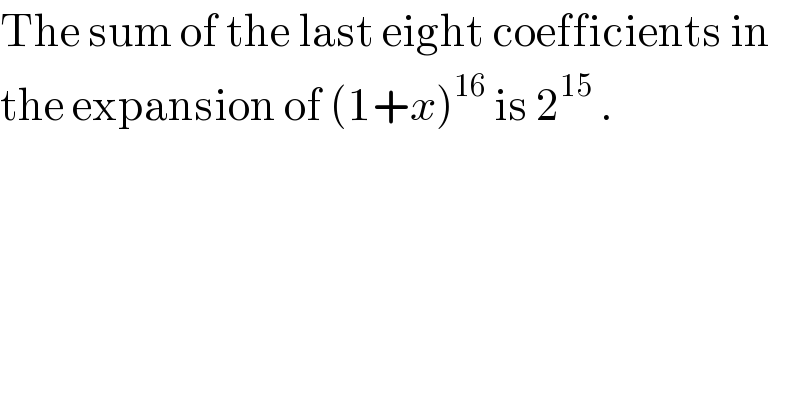Question Number 55788 by gunawan last updated on 04/Mar/19

Commented by gunawan last updated on 04/Mar/19

Commented by maxmathsup by imad last updated on 04/Mar/19

Commented by maxmathsup by imad last updated on 04/Mar/19

Answered by tanmay.chaudhury50@gmail.com last updated on 04/Mar/19
![total terms=16+1=17 sum of coeffucients (1+x)^(16) =1+16c_1 x+16c_2 x^2 +16c_3 x^3 +..+16c_(16) x^(16) 2^(16) =16c_0 +16c_1 +...+16c_8 +16c_9 +16c_(10) +..+16c_(16) we have ti find the value of 16c_(16) +16c_(15) +16c_(14) +16c_(13) +16c_(12) +16c_(11) +16c_(10) +16c_9 =k again 16c_0 +16c_1 +16c_2 +16c_3 +16c_4 +16c_5 +16c_6 +16c_7 =k [since nc_r =nc_(n−r) ] now ninth term is 16c_8 x^8 →coeeficient=16c_8 so 2k+16c_8 =2^(16) 2k=2^(16) −((16!)/(8!8!)) k=2^(15) −(1/2)(((16!)/(8!8!))) required ans is2^(15) −(1/2)(((16!)/(8!8!))) pls check...](https://www.tinkutara.com/question/Q55799.png)
